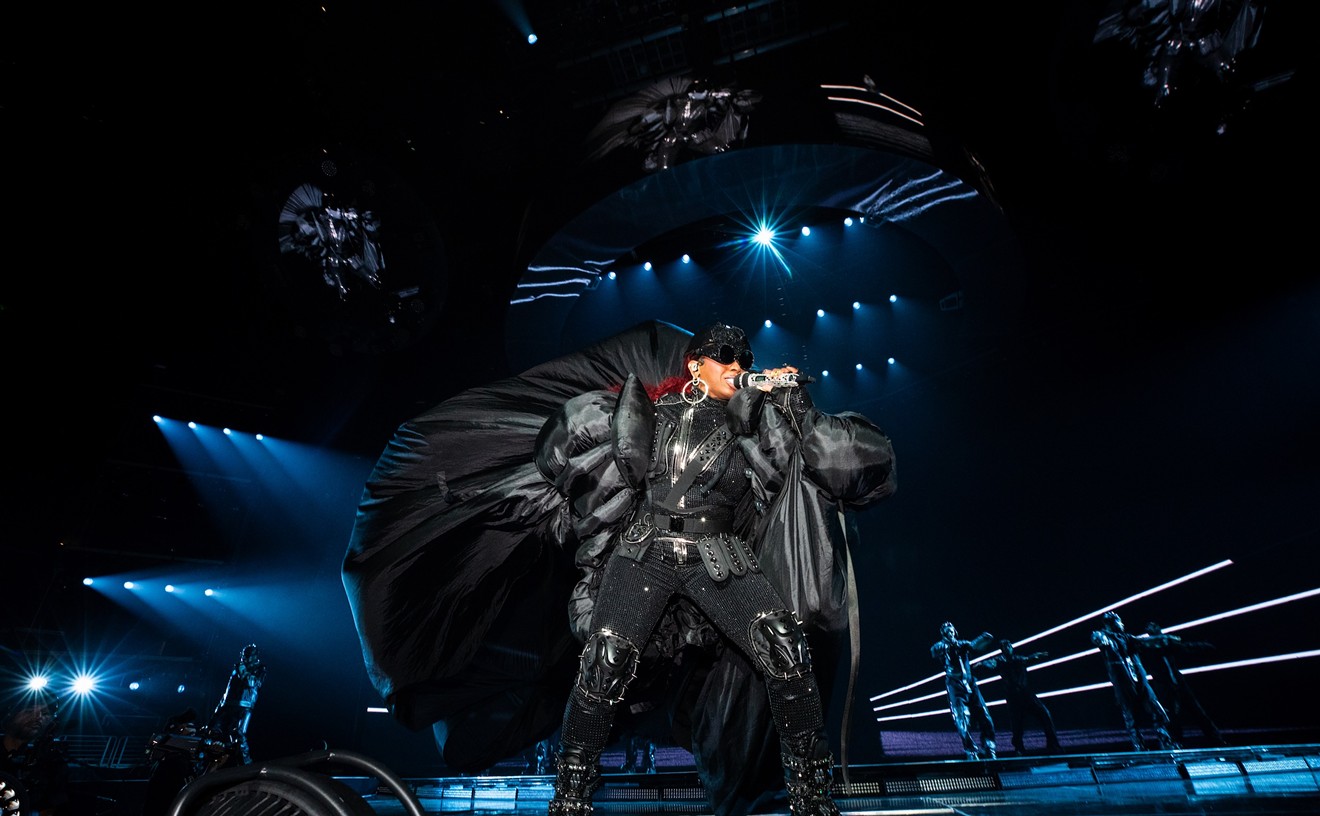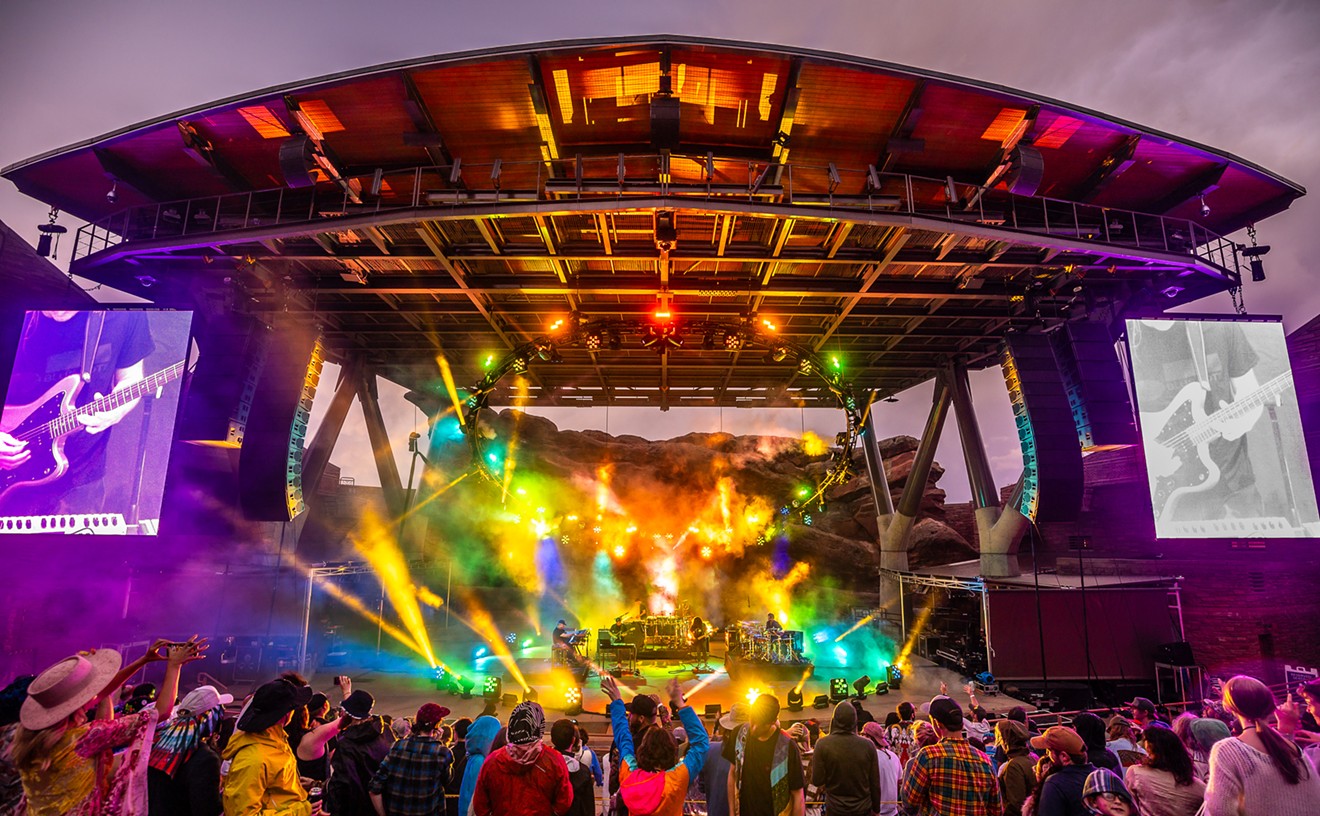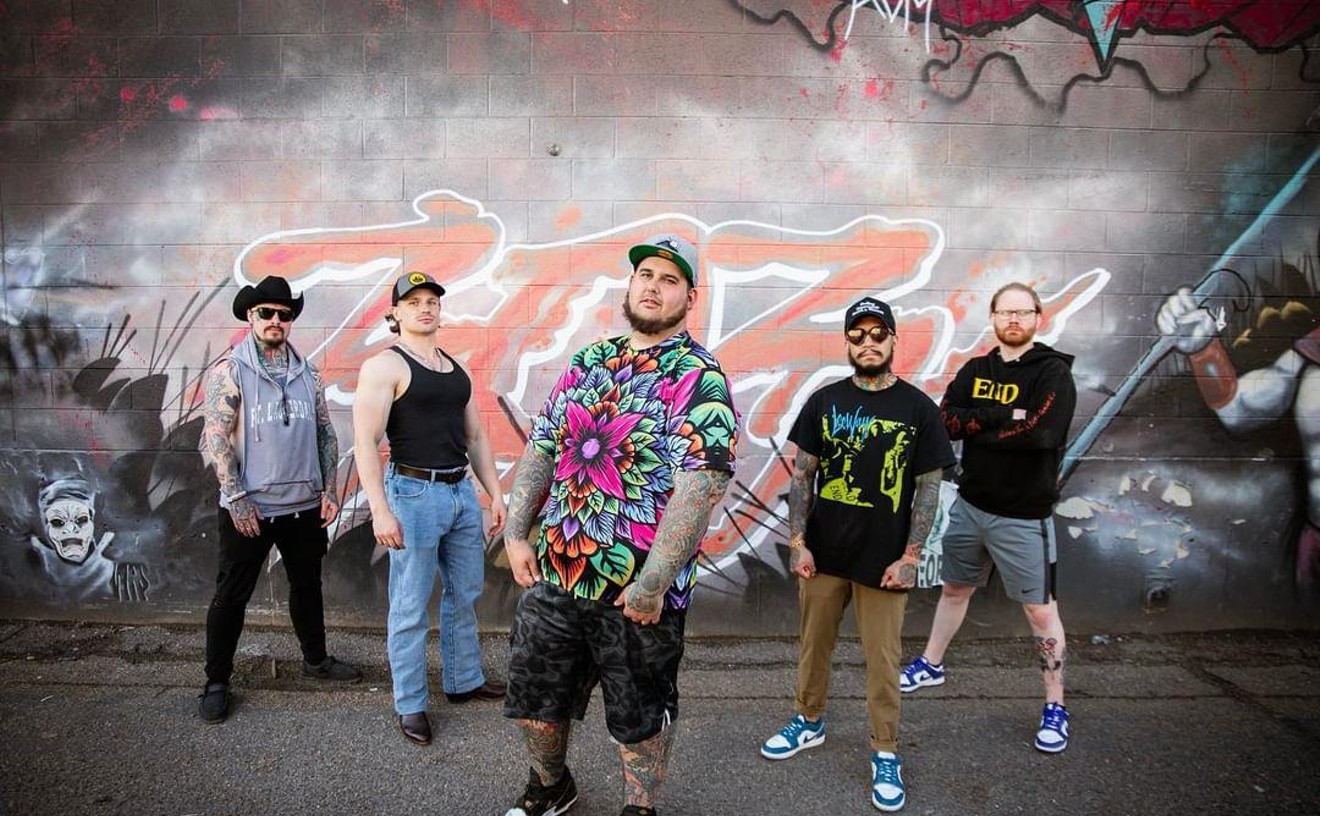"You've got to understand the way most people review things these days," he says. "They just skip through it, and since they only have 200 words to fill, it's really easy. They'll go, 'Let's not make it too bad or too good. Let's say it's a little like the Strokes, but not that much.' And then if one person says it, everyone else pretty much says the same thing."
Of course, the similarity of the Keep critiques might also be explained by Hammond's low-key approach. Rather than making a bold musical statement, he turns the intensity way down throughout the lullaby-like "Cartoon Music for Superheroes" and the bouncy "Call an Ambulance," whose melody is occasionally augmented by cheery whistling. The results, though charming at times, certainly don't represent a declaration of independence.
That's appropriate, since Hammond insists he remains committed to the Strokes, despite attempts by music journalists to hype a rift. For instance, Hammond resents having to deal with the repercussions of "The Strokes Rejected Albert Hammond Jr. Songs: Solo Album Fueled by Band Saying 'No,'" a September 2006 article in Britain's New Musical Express. About the piece's author, Hammond recalls that "he was pressing me so much, and I was trying to give him some insight into the politics in bands. But I couldn't explain it to him well -- I can't explain it well now -- and he took it the wrong way. And from then on, I've had to keep saying, 'It's wrong.'"
Hammond's frustration with the media is understandable. Despite his being part of a group that re-established New York rock chic, those damn reporters keep asking questions about his father and namesake, Albert Hammond, a singer-songwriter whose biggest hit in the U.S. was the '70s sap classic "It Never Rains in Southern California," not to mention the two years of his childhood when he was a top-flight participant in competitive-pairs roller skating. Back then, Albert Jr. performed before crowds numbering in the thousands, but, he says, "It never really scared me to see all those people. It really excited me, actually." Now, however, he often feels anxiety when stepping on stage. "At a certain point in my life, I guess I lost confidence in myself," he admits.
Still, Hammond says he's enjoying the opportunity to serve as a frontman and is doing his best to look on the bright side of life. "I think happiness is a choice," he says, "and I'm trying to choose it."
Different Strokes for different folks.











